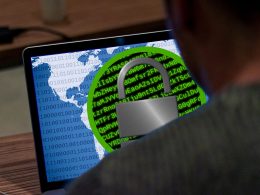Bad actors in cybersecurity are people and teams who attack and infiltrate digital systems for malicious purposes. Their motivations could range from money to personal beliefs.
There are several types of bad actors in cybersecurity. Some may have “good” or somewhat reasonable intentions driving their actions. However, if the activity is unauthorized, the person is still considered a “bad actor.”
Types Of Bad Actors
1. Cybercriminals
The term “cybercriminal,” also spelled as “cyber criminal,” describes anyone who commits crimes over the internet. It is a general term similar to how “criminal” describes any person who conducts unlawful activity.
Cybercriminals could hack your social media accounts, scam you by impersonating a friend or even hack your financial accounts online. Any crime that is conducted over the internet is done by a cybercriminal.
Sometimes cybercriminals even work as a group. This individual group could conduct complicated and sophisticated attacks that trick even the most established and protected enterprises.
2. Unethical Hackers
An unethical hacker is a person who gains unauthorized access to an organization’s systems and/or networks. The unethical hacker bypasses cybersecurity measures purposely and with malicious intent.
The hacker hopes to collect personal information. Then, they will sell it on the dark web or hold it for ransom. This hacker is usually motivated by financial gain.
3. Hacktivists
Hacktivists are cybercriminals who believe that their hacking is for the greater good. They target individuals or organizations they believe are immoral or “deserve” it.
Hacktivists’ main attack mode is to gain unauthorized access to data and either leak or damage it.
4. Cyberterrorists
Cyberterrorists weaponize technology against organizations and governments. They attack critical computer systems to cause damage and intimidation.
Many of our most critical functions are controlled by technology. Our water supply, gas supply, electricity, medical machines, and more are under the thumb of digital devices and networks.
If a cyberterrorist manages to control one or more of those functions, many people could get seriously hurt or even die.
Many nations consider cybersecurity to be a national defense threat.
5. Government Or State-Sponsored Hackers
Hackers can be hired or sponsored by their own government to spy or wreak havoc on other governments or states.
Government or state-sponsored hackers provide state intelligence to their sponsor. The hacker may gain valuable information or sabotage the enemy’s digital systems.
What Do Bad Actors In Cybersecurity Do?
Bad actors in cybersecurity are responsible for all the cyber crimes that occur to both businesses and individuals.
Four Of The Most Common Cyber Threats
1. Malware
Malware is the shortened term for malicious software. It is software designed to damage devices and gain unauthorized access to information.
2. Viruses
A computer virus is code meant to spread from device and device. Viruses can replicate themselves. It changes the computer’s operation. Depending on the virus, this cyber attack may harm the device’s software and corrupt files and data.
3. Ransomware
A ransomware attack uses malicious software to prevent you from using your own devices until the hackers receive compensation — hence the word “ransom.” Paying the ransom could be extremely expensive, and there’s no guarantee that the hacker will keep his or her word. The hackers may not follow through with their promises or demand more money after the payment is sent.
4. Phishing
Phishing is a malicious attempt to gain sensitive information by imitating another person or organization. Phishing usually comes in the form of an email.
Stay Safe With Cybersecurity
Cybersecurity practices like using strong passwords and never giving out personal information only goes so far if you don’t use them harmoniously.
Agency, a cybersecurity company, offers comprehensive, business-level cybersecurity that prevents, monitors, and mediates problems if they arise. Be protected by a team of cyber security experts that monitor and respond against cyber threats 24/7.
Agency’s Plan Includes:
- Next Gen Antivirus/EDR
- Active Dark Web Monitoring
- Personal Information Removal
- Personal Cyber Coverage
- ID Theft Coverage
- Active Security Monitoring & Response by US Pros
- VPNs
Cybersecurity attack vectors target every individual connected to technology, and it’s advisable to guard yourself and your information against malicious actors.







